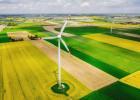LIFE Project: Management of slow-growing forests for climate change mitigation
- Type Project
- Status In progress
- Execution 2023 -2028
- Assigned Budget 2.365.559,00 €
- Scope Europeo
- Autonomous community Andalucía
- Main source of financing LIFE
- Project website Web del proyecto
LIFE CO2RK seeks to create an operational framework to guide emissions offset projects in European beech forests, using cork oak forests as a reference. It thus aims to quantify and demonstrate the potential of cork oak forests in climate change mitigation, thereby promoting cork as a carbon reservoir. This novel and innovative system can be extrapolated to other forest systems such as beech or chestnut groves, marking a turning point in the valorization of slow-growing beech forests in the European carbon market and the application of carbon silviculture. LIFE CO2RK develops a series of integrated actions in three Member States, at the national and regional levels, with different starting points in terms of political, legal, and operational maturity.
The establishment of emissions trading systems has promoted ambitious GHG reductions by creating economic incentives to reduce CO2 emissions from many activities. Outside this control system are the diffuse, less energy-intensive sectors (residential, transport, waste, agriculture, fluorinated gases, and other industries) that are responsible for around 40% of EU GHG emissions. Regulation (EU) 2018/842 of the European Parliament and of the Council demonstrates the EU's interest in promoting emissions reductions from these sectors. To achieve this, it is necessary to develop regulatory and operational frameworks at the national or regional level that channel the compensatory interest of these sectors into actions capable of sequestering additional carbon than that sequestered by the natural environment.
Private financial flows can be essential for sustaining beech forests in the EU, which, due to their slow growth, are not being used in CO2 capture policies, despite scientific evidence that the complex ecosystems they generate have a high CO2 sequestration capacity. The project will be developed in cork oak forests and replicated in beech forests, whose products do not emit CO2 but instead sequester it for a long lifespan (cork in industry, wood in construction). The results can be extrapolated to a family widely distributed throughout the EU, in complementary habitats within the Natura 2000 Network, with a significant impact on biodiversity and the socioeconomic environment.
Complete the design and development of legal, administrative, financial, and technical tools that allow for the certification and recording of carbon sequestered by forest management practices, enable its exchange for offsets, and channel investments from diverse sectors in exchange for offset carbon.
- Coordinator/entity name: Juan Manuel Fornell Fernández
Postal address: AV. MANUEL SIUROT, 50, 41071, Seville,
- CONSEJERíA DE SOSTENIBILIDAD Y MEDIO AMBIENTE
- UNIVERSIDAD DE CORDOBA
- ASOCIACIóN AGRARIA DE JóVENES AGRICULTORES
- ANDALUS ORGANIC SL
- AGENCIA DE MEDIO AMBIENTE Y AGUA DE ANDALUCIA
- CENTRO DE INVESTIGACIONES APLICADAS AL DESARROLLO AGROFORESTAL SL
- UNIVERSITA POLITECNICA DELLE MARCHE
- REGIONE MARCHE
- INSTITUTO DA CONSERVACAO DA NATUREZA E DAS FLORESTAS IP
- CENTRO TECNOLOGICO DA CORTICA
- UNAC UNIAO DA FLORESTA MEDITERRANICA







